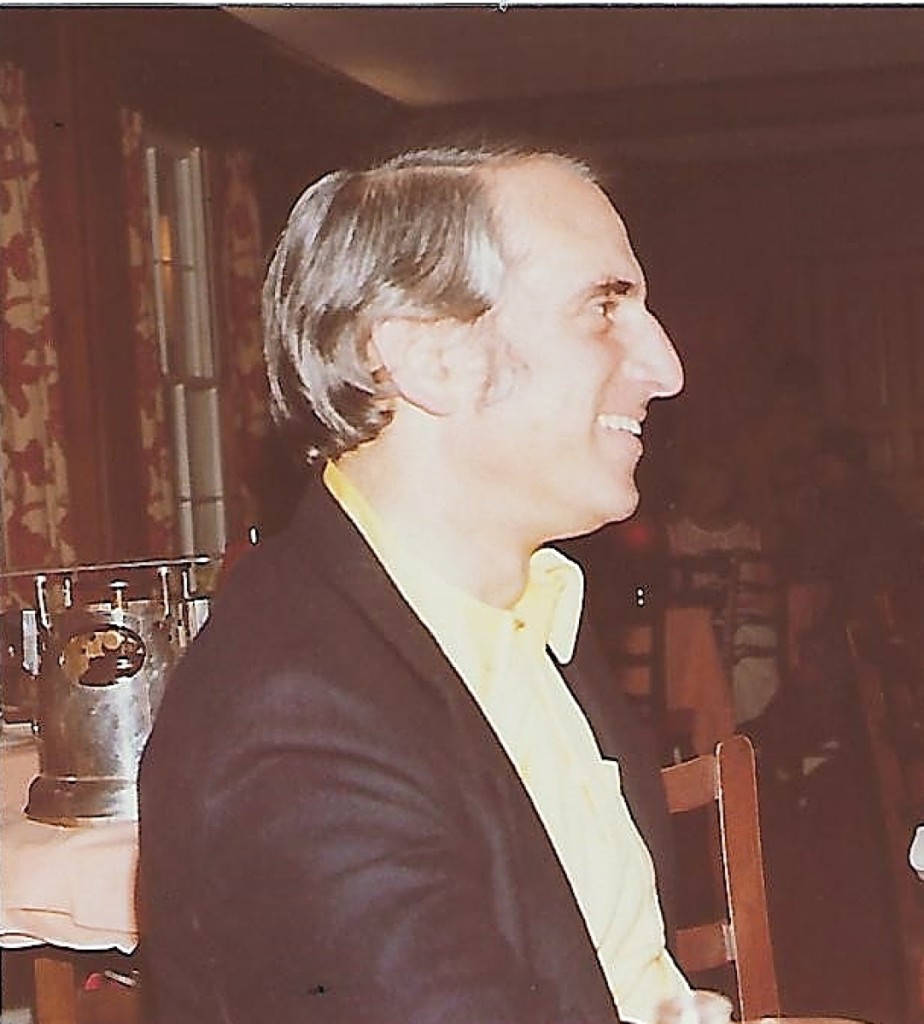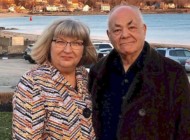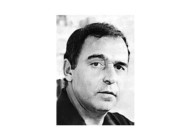By David A. Schorsch
John B. Schorsch Sr, 93, died on August 30, 2021. He was born in Philadelphia on July 11, 1928, to Irvin Garfield Schorsch Sr, a real estate investor and one time frog farmer, and Iras Goldstein Schorsch Stern, an artist, writer and chairwoman of the board of Arlington Cemetery Company in Drexel Hill, Penn. He is survived by his wife and constant companion of more than 40 years, Joan Arden Schorsch, and five children from his first marriage to Marjorie H. “Peggy” Schorsch, William D. Schorsch, Lake Forest, Ill., Toni Ann Evans, Oakland, Calif.; Margaret R. Schorsch, N.Y., John B. Schorsch, Jr., Dallas, Texas, David A. Schorsch, Woodbury, Conn.; step-children, Kim Diamond Stone, N.Y., Clifford Diamond, N.Y.; seven grandchildren, Shannon Winther Schorsch, David Winther, Amanda Winther, Brandon Schorsch, Grayson Schorsch, Aiden Schorsch, Lizzie Athena Schorsch; and two step grandchildren, Olivia Stone, and Alexandra “Lexie” Diamond. He was predeceased by a daughter, Wendy C. Schorsch, and his brother, Irvin G. Schorsch Jr.
Although I worked with my mother in the antiques business for 20 years, my father was an equally important mentor in my earliest exposure to American antiques from the time I was a small boy. I vividly recall pouring over books on a wide array of antique subjects that ranged from Chinese snuff bottles to the American furniture that most interested me. He pointed out his favorite pieces and the reasons why he liked them best. We frequently went antiquing together, attended auction previews, visited museums and historic sites. These were special father and son activities that we shared together that remain happy memories.
My father’s many talents could have taken him into any number of professions, but he found success in family businesses in real estate and scrap metal. His paternal grandfather, David Schorsch, an immigrant from Baden, Germany, founded a real estate business focused on properties in Philadelphia, Montgomery and Bucks County, Penn. His maternal great grandfather, Louis Goldstein, established a scrap metal business in Philadelphia after the Civil War that he and my uncle grew into a successful refinery of nonferrous metals, which they sold in the late 1960s. My father was blessed with an expansive imagination, artistic and technical aptitude, and an inventive and curious mind that served him well. Over a period of 60 years he obtained a number of patents for a wide range of inventions, from a method for separating wire from casing at age 32, to a self-illuminated picture frame in January of 2021 when he was 92. During the energy crisis of the 1970s, he advocated for the use of cryogenics in reclamation of scrap metals by separating materials using liquid nitrogen instead of the standard method of smelting, which relied on fossil fuels.
In 1940, my father and his brother Irvin resided with their mother on Pine Street, the epicenter of the antiques business in Philadelphia. This exposure undoubtedly piqued the curiosity in these boys and likely stimulated future collecting activities. My father’s first serious collection was antique guns that he began as a teen. When that collection was stolen in the early 1960s, he used the proceeds of the insurance settlement to start a new collection of Chinese export porcelain inspired by his friends Ted and Ruth Kapnek, who later went on to assemble one of the great collections of American samplers. Over time, my father’s collecting interests expanded to include a wider range of ceramics, metal wares, scrimshaw, painted tin, Oriental rugs, American country and formal furniture and folk art. He was part of a generation of likeminded collectors of American antiques who strove to recreate period room settings inspired by interiors at museums such as Historic Deerfield, Winterthur and Colonial Williamsburg. This immersive style of decorating was echoed in the homes of other collector friends, and his brother and sister-in-law, Irvin and Anita Schorsch.
My father strongly advocated for the collecting of antiques among his non-collecting friends and neighbors. He promoted the joy of collecting and its educational opportunities. He saw the practicality and financial advantage of buying genuine antiques instead of reproductions or costly “department store” furniture in the same price range. Thanks to his urging, several friends and some of their children became collectors.
John B. Schorsch Sr, will be remembered by his friends and family for his intelligence, larger than life personality, marvelous sense of humor and a true gift for storytelling.





